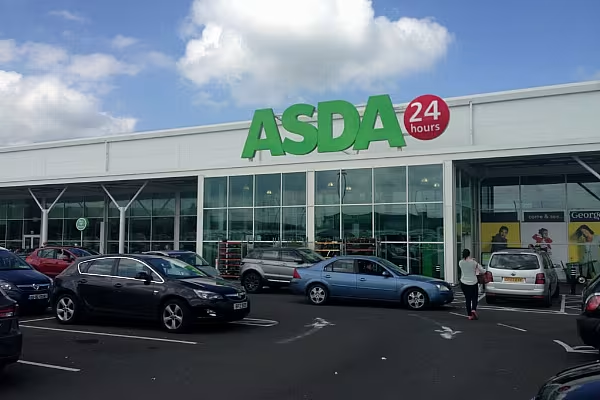Wal-Mart, the world's biggest grocer, has got itself into a bit of a pickle in the U.K.
Over the past year, Asda's sales have consistently fallen more than at the other three of the so-called big-four supermarkets -- Tesco, Sainsbury and Morrison.
Wal-Mart knew it wasn't going well at the unit. It had a plan, to bring in Roger Burnley, a highly thought-of executive at rival Sainsbury, to be chief operating officer. Burnley arrives in October.
The idea was that once he got his feet under the table, he would replace current chief executive Andy Clarke. Clarke even confirmed this course of events on June 6.
But Wal-Mart obviously couldn't wait. It said Monday it is parachuting in Sean Clarke (no relation), currently head of its China unit, to lead the division.
It has been obvious for some time that new leadership was needed at Asda, but the reshuffle looks as messy as a spillage in the dairy aisle.
At least the company recoginzes that action needs to be taken to remedy the U.K. business, previously a jewel in Wal-Mart's international crown. Its struggles have relegated it to third place behind Sainsbury and Tesco, currently Britain's biggest grocer.
One wonders if Burnley's happy with this. He'll be deputy chief executive. That's a bigger role, and should make for a strong top team. But Burnley was no doubt banking on becoming chief executive in the next three years. That may yet be the case. But his elevation is probably further away than it was under Andy Clarke.
And Sean Clarke and Burnley have their work cut out.
As Gadfly has noted, Asda was the first to spot the danger of the arrival of German no-frills supermarkets, Aldi and Lidl, and cut prices accordingly.
But it didn't keep the pressure up. Aldi and Lidl have continued to retain price leadership, particularly in fresh foods.
Asda is also not just contending with the German discounters. Tesco is improving its sales growth -- although its profit projections remain disappointing -- while Morrison is quietly recovering.
Dave Cheesewright, head of Wal-Mart's international arm, said earlier this month that Asda would focus on taking share from rivals, rather than protecting its profit. That's the right thing to do.
To stand any chance of fighting back, Asda will have to look beyond competing on price. Aldi and Lidl have done a good job persuading shoppers that the quality of their products is as good as at the mainstream supermarkets, winning over the cash-strapped middle classes. Asda needs to do the same.
Under Andy Clarke, Asda did try to improve the quality of its products, but like the effort to compete with the Germans on price, it didn't go far enough.
There's a theme developing. Asda can identify its problems and develop solutions, but seems to lack the capacity or the will to follow through on its strategy, partly becasue of its parent's insistence on hanging onto the unit's profits.
This is probably Asda's last stand. The last year was a tough one, with senior management departures and a failed effort to turn around sales. A rebound now is a tricky proposition without significant work and investment from Wal-Mart.
Otherwise, it may be time for another reshuffle at the U.S. giant -- this time of its international portfolio. If it can't turn Asda round, it should admit, as it did in Germany, that the U.K. is just too difficult a market to crack, and look for a way out.
Speculation has been rife of private equity interest in Morrison, so Asda might be another option for buy-out groups.
When it comes to the U.K. it's time for Wal-Mart to step up or ship out.
By Andrea Felsted. This column does not necessarily reflect the opinion of Bloomberg LP and its owners.
News by Bloomberg, edited by ESM. To subscribe to ESM: The European Supermarket Magazine, click here.














